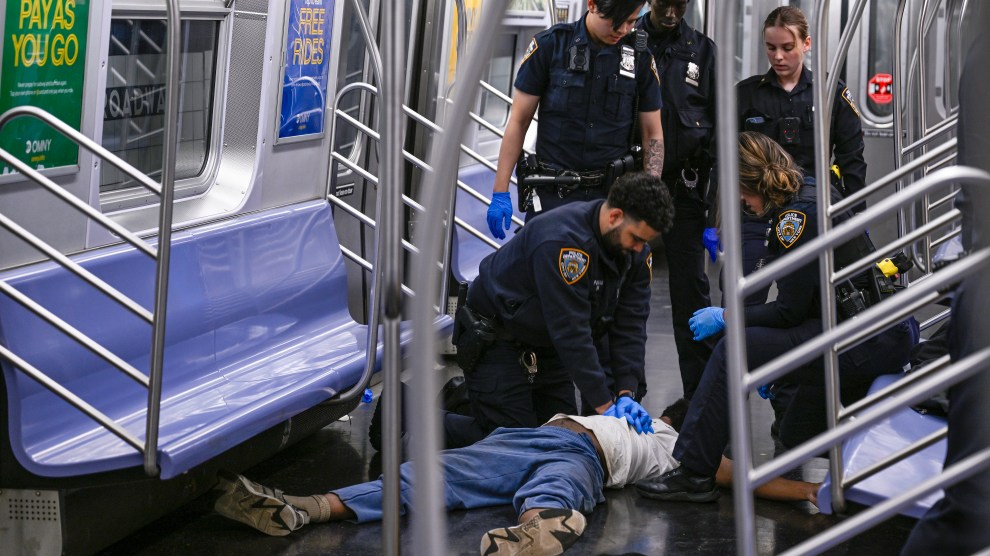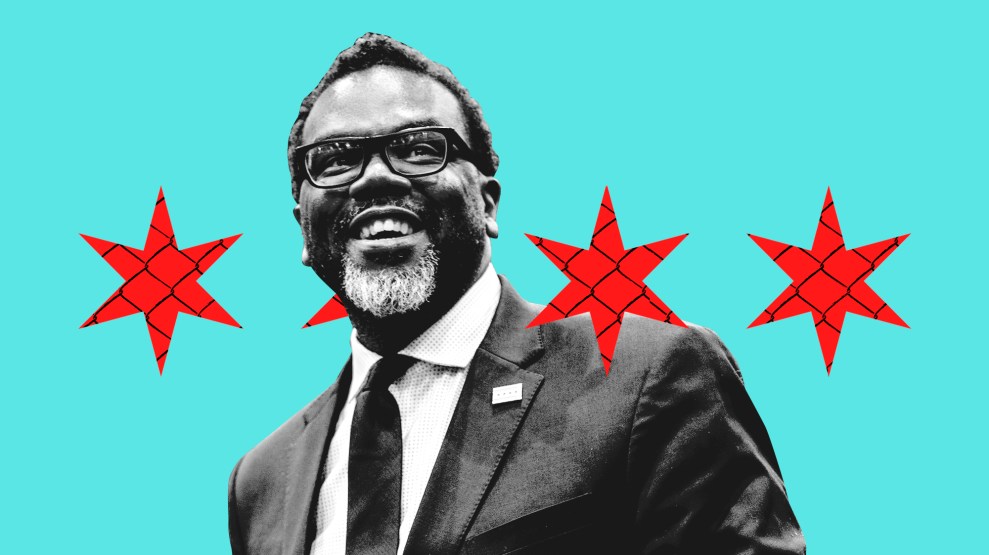
Paul Martinka/AP
On Tuesday, a man boarded an uptown F train in Manhattan and started yelling.
“He started screaming in an aggressive manner,” a witness told the New York Post. “He said he had no food, he had no drink, that he was tired and doesn’t care if he goes to jail.”
That sounds to me like someone who needs help. A reasonable response to such a passenger might be to alert the conductor, or switch train cars, or simply look down at your phone and do nothing. Instead, a 24-year-old subway rider placed the man, identified as Jordan Neely, in a chokehold and held him there until he died.
Police questioned the unidentified 24-year-old but have not charged him with a crime.
A witness who recorded a video of the incident told the New York Times that Neely had not assaulted anyone. But that hasn’t stopped the Post from employing rhetorical gymnastics to suggest that Neely’s death is his own fault. The Post paints the 24-year-old as a hero, proclaiming, “Dramatic new video shows a straphanger taking matters into his own hands, pinning down an unhinged man in a deadly incident.” The key word, “deadly,” is tacked onto the sentence as an afterthought. The article refers to Neely as a “vagrant,” while his attacker is merely a “straphanger.” (The Post has long used the term as a way to describe the innocent subway rider harmed by a stranger.)
The New York Times’ coverage is only slightly better. While the Times avoids words like “vagrant” and “unhinged,” it plays up fears of increased crime rates on the subway and suggests that an upped police presence—rather than a rise in ridership after the height of the pandemic—is responsible for bringing crime back down.
It’s easy to blame Neely for causing a scene, and even easier to blame his attacker for placing him in the chokehold that apparently led to his death. But pointing out Neely’s lengthy arrest record, for example, is not the flex that the New York Daily News might think it is. New York’s mental health and criminal justice systems clearly failed Neely, who once made a living as a Michael Jackson impersonator and who testified in the murder trial of the man who killed his mother. And our culture failed the attacker, too, by creating the notion that unarmed homeless people—especially those who are mentally ill and Black—are inherently dangerous.
After 30 years of life, Neely will forever be reduced to an aggressive, “unhinged vagrant” in the eyes of Post readers. He deserved better from everyone.















